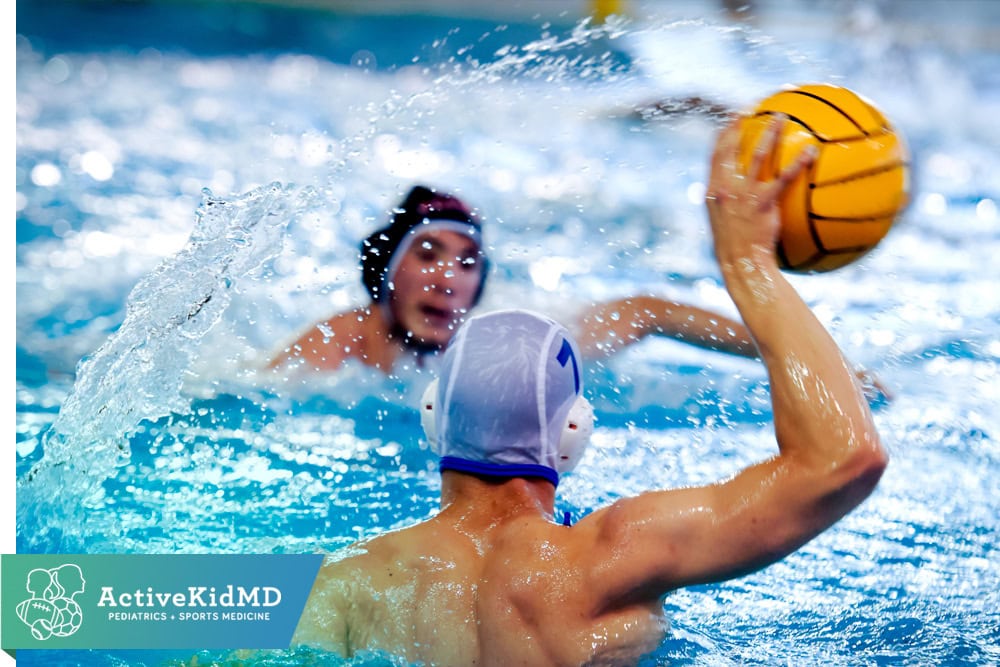The pain of swimmer’s ear can not just ruin good times in the water but also put a damper on regular life activities.
Known in medical circles as Otitis Externa, swimmer’s ear results from infection and swelling of the outside of the ear. Swimmer’s ear is often due to prolonged exposure to moisture (such as in pools). Typical symptoms include pain and discharge from the outer ear along with difficulty chewing.
Once in full bloom, antibiotic and anti-inflammatory ear drops are often used for treatment. Oral pain medicines or antibiotics are needed for more severe cases. Many athletes will need a minimum of 2-3 days out of the water before being able to return.
To prevent the pain and disruption caused by swimmer’s ear, follow these important tips:
- Regularly use of 2 drops of preventative ear drops in both ear canals after each and every water exposure. The combination of rubbing alcohol (isopropyl alcohol) and acetic acid (vinegar) can be purchased over-the-counter. It can also be made at home with a 50:50 mixture of the rubbing alcohol and vinegar.
- Don’t be over-aggressive with cleaning out wax from the ear canals. Sufficient wax is the friend of a swimmer. A lack of wax in the ear canals increases the risk of infection, especially if small abrasions are left after vigorous attempts at wax removal.
- Dry out those ear canals after swimming. Tilt the head toward each shoulder to try and allow water drainage from the ear canals. Using a hair dryer at lowest settings can also help dry out the canals. Just don’t get too close for concerns over excessive heat or risk of hearing damage.
- Careful with metal earrings that could sensitize the ear to higher risk of infection. If possible, remove any piercings before swimming, especially in cases of recurrent swimmer’s ear infections.
Can ear plugs or tighter swim caps reduce swimmer’s ear infections?
There is controversy about using ear plugs with our without tight swim caps to reduce initial or recurrent infections. There is no substantial evidence to strongly recommend plug or caps to prevent swimmer’s ear.
Best to use the above prevention tips to reduce the risk of missing out on favorite water sport activities!


